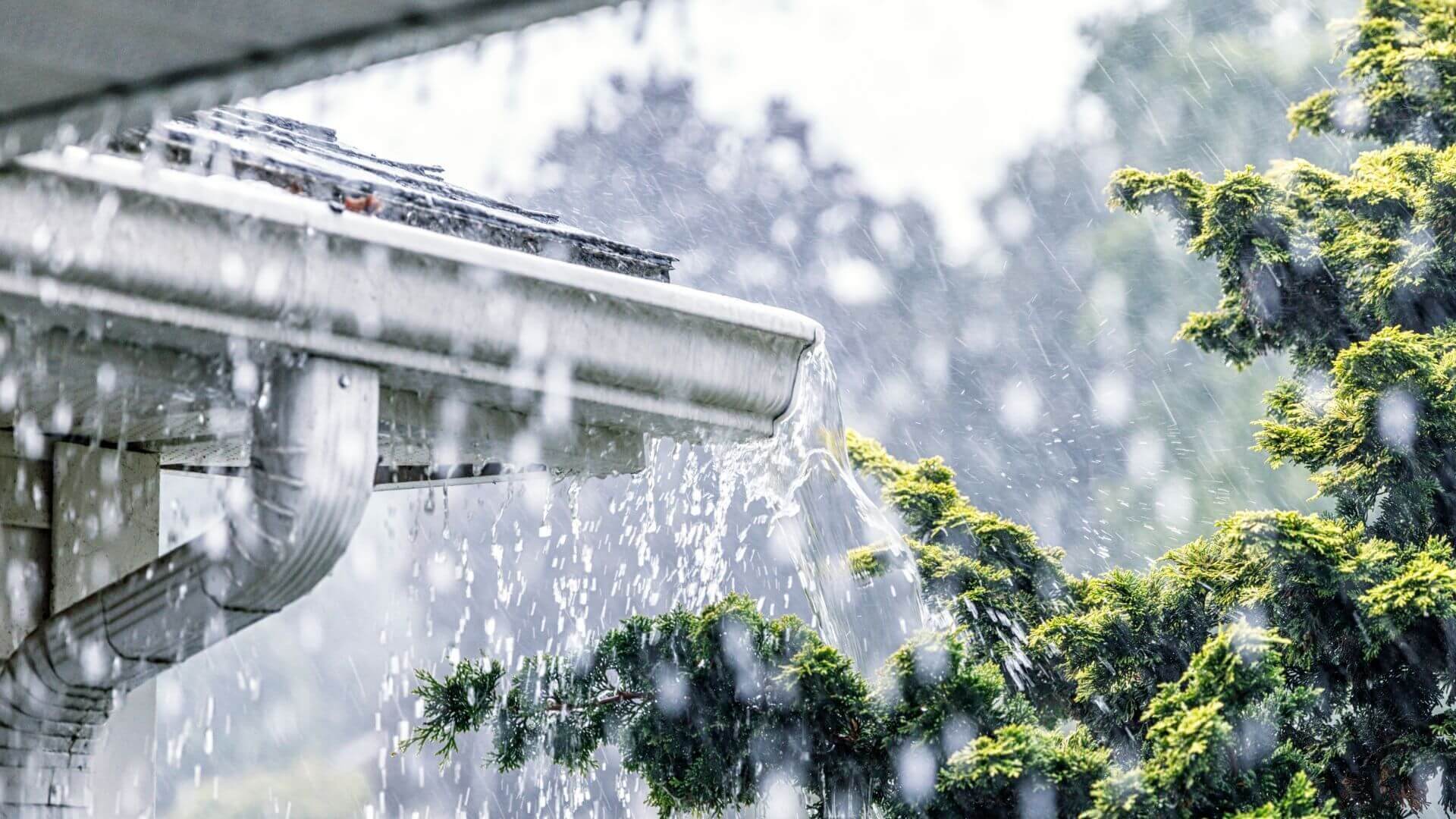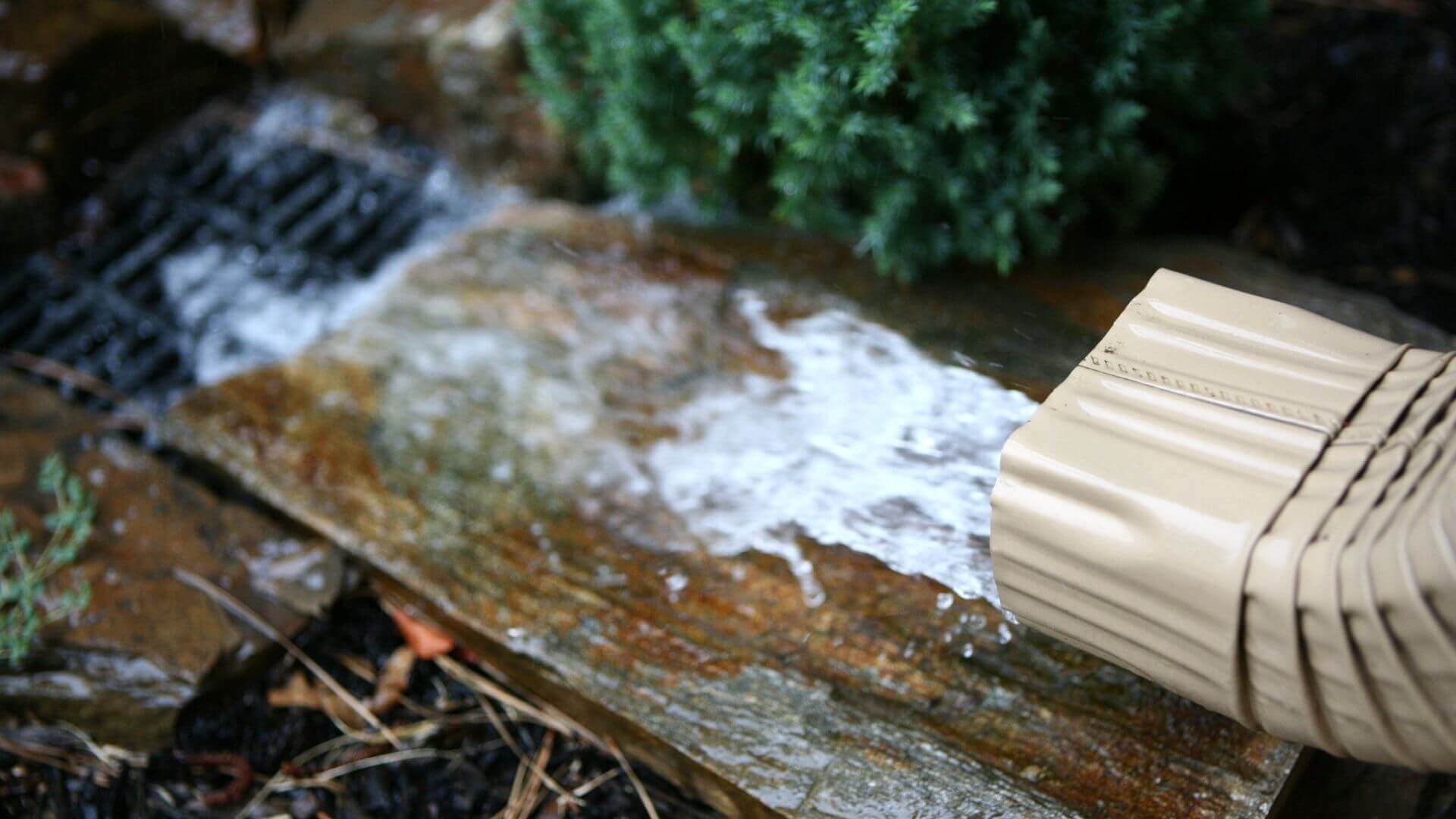Picture this: it’s pouring rain outside, and you notice water cascading over the edges of your gutters like a miniature Niagara Falls. Frustrating, right? But it’s more than just an unsightly mess; when your gutters are overflowing, it can lead to significant water damage to your home’s foundation, walls, and landscaping.
Many homeowners face this common problem, but the good news is that understanding the root cause of gutter overflow issues is the first step in finding practical solutions to keep your home safe and dry during heavy rainfall.
An efficient gutter system is essential for channelling water away from your home, but when your gutters are overflowing, it’s a clear sign that something’s not quite right. Whether it’s clogged gutters, improper installation, or inadequate capacity, getting to the bottom of your gutter problems is crucial in preventing costly water damage and ensuring that your home stays protected during even the heaviest downpours.
Reasons Your Gutters Overflow After Heavy Rain

Clogged Gutters: The Most Common Culprit
One of the most common reasons for gutters overflowing during heavy rain is clogged gutters. When your gutter system becomes clogged with debris such as leaves, twigs, dirt, and other debris, it hinders the free flow of water through the gutters and downspouts. As a result, rainwater can pool in the gutters and eventually overflow, causing water damage to your home’s foundation, siding, and landscaping.
Regular cleaning and maintenance are essential to prevent clogged gutters from causing overflow. Homeowners should clean their gutters at least twice a year, preferably in the spring and fall, to remove debris and ensure the efficient flow of water through the entire gutter system.
For those who find cleaning gutters daunting, installing gutter guards can help minimise debris accumulation and reduce the frequency of gutter cleaning.
Insufficient Gutter Capacity
Another reason your gutters may overflow during heavy rain is insufficient gutter capacity. If your gutter system is undersized or installed incorrectly, it may not be able to handle the volume of water during heavy rainfall, leading to gutter overflow.
To determine if your gutters are adequately sized, consider factors such as your roof’s square footage, pitch, and the typical rainfall intensity in your area. If you suspect your gutters are undersized, upgrading to larger gutters or adding additional downspouts to accommodate the water flow during heavy rains may be necessary.
Improperly Pitched Gutters
Properly pitched gutters are essential for adequate water drainage. If your gutters are not installed with the correct pitch, water can pool in the gutters instead of flowing towards the downspouts, leading to overflowing gutters during heavy rain.
The general rule of thumb for gutters in Australia is to have a slope of 20mm per 5 metres of gutter run to ensure proper water flow. You can check your gutter pitch using a spirit level and make necessary adjustments. If you’re unsure about making these adjustments, consider hiring a professional gutter installer to assess and correct your gutter pitch.
Damaged or Sagging Gutters
Over time, gutters can become damaged or start to sag due to various factors such as age, extreme weather conditions, or improper installation. Damaged or sagging gutters can cause water to pool and eventually overflow, compromising the efficiency of your entire gutter system.
Regular gutter maintenance is crucial in identifying and addressing any signs of gutter damage or sagging.
Look for signs such as cracks, holes, or visible sagging in your gutters. If you notice any damage, it’s essential to repair or replace the affected sections promptly to prevent further deterioration and gutter overflow issues.
Inadequate Downspout Placement or Capacity
Downspouts are crucial in directing water away from your home’s foundation during heavy rain. Suppose your downspouts are inadequate in number, size, or placement. In that case, they may be unable to channel water effectively away from your home, leading to overflowing gutters and potential water damage.
To ensure your downspouts are functioning optimally, consider the size and placement of your current downspouts. If you notice water overflowing from your gutters during heavy rain, it may be necessary to add downspouts or increase the size of your existing ones to accommodate the water flow.
Additionally, ensure that your downspouts are directing water at least 5 feet away from your home’s foundation to prevent water from seeping into your basement or crawl space.

Keeping Your Home Safe and Dry During Heavy Rain
By understanding the common causes of overflowing gutters during heavy rain, homeowners can take proactive steps to keep their homes safe and dry. Regular gutter maintenance, including cleaning and inspections, is essential in preventing clogged gutters and ensuring the structural integrity of your gutter system. Addressing issues such as insufficient gutter capacity, improper pitch, and inadequate downspout placement can also help minimise the risk of gutter overflow and water damage.
If you find yourself overwhelmed by the task of maintaining or repairing your gutters or addressing gutter overflow issues, don’t hesitate to seek the help of professional gutter services.
Their expertise and knowledge can assess your gutter system, provide tailored solutions, and ensure that your gutters are functioning efficiently to protect your home during heavy rainfall. If you are on the Gold Coast, speak to our experts at A.I Gutter & Roofing!
By taking a proactive approach to gutter maintenance and promptly addressing any issues, you can safeguard your home from the damaging effects of overflowing gutters and enjoy peace of mind during even the heaviest rainstorms.
Overflowing Gutter FAQs
How can gutters stop overflowing in heavy rain?
To stop gutters from overflowing in heavy rain, ensure regular maintenance by cleaning them of debris, installing gutter guards, and checking for proper pitch. Gutter guards help prevent debris build-up, allowing water to flow freely. Cleaning your gutters regularly and ensuring they’re pitched correctly towards the downspouts will also help prevent water overflow and stagnant water from accumulating in your overflowing gutter.
Is it normal for gutters to overflow during heavy rain?
While it’s not uncommon for gutters to overflow during heavy rain, it’s not normal and indicates an underlying issue. The most common reason for an overflowing gutter is a clogged gutter system that hasn’t been cleaned regularly. Other factors include improper pitch, inadequate gutter size, or damaged gutters. Regular maintenance and following essential maintenance tips can help prevent gutter overflow.
How do I stop rain from overshooting my gutters?
Consider installing gutter guards or splash guards to prevent rain from overshooting your gutters. Gutter guards help prevent debris from clogging your gutters, allowing water to flow freely and reducing the risk of overshooting.
Splash guards are installed on the front edge of the gutter to prevent water from spilling over during heavy rain. Regular maintenance, such as cleaning your gutters and ensuring proper pitch, can also help minimise overshooting.
Is it normal for gutters to drip in heavy rain?
Some dripping from gutters during heavy rain is expected, especially if you have a gutter system without seamless gutters. However, excessive dripping or water overflow can indicate an issue, such as a clogged or damaged gutter, improper pitch, or inadequate gutter size.
To minimise dripping, ensure your gutters are cleaned regularly, have a proper pitch, and are in good condition. Again, installing gutter guards can also help prevent debris build-up, reducing the risk of dripping and overflowing gutters.




